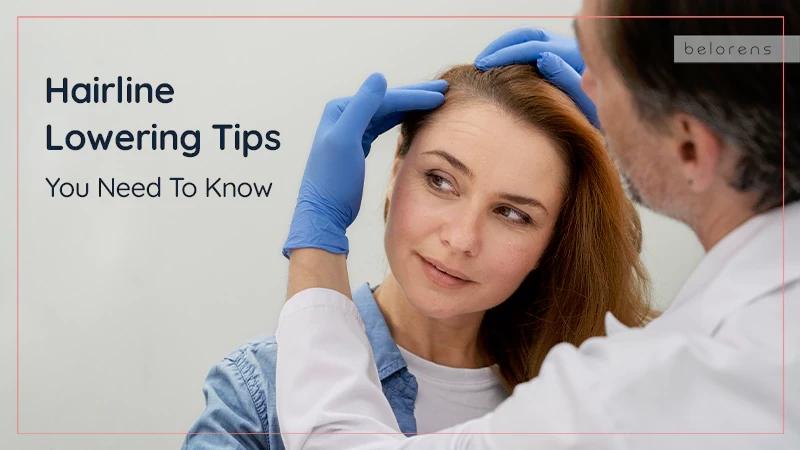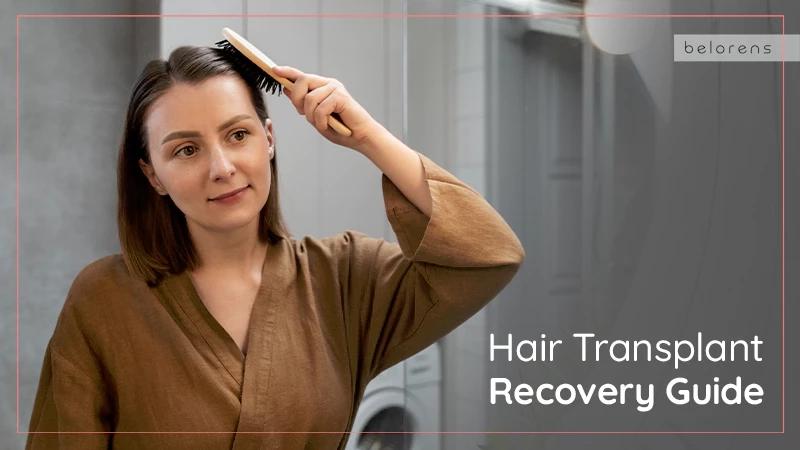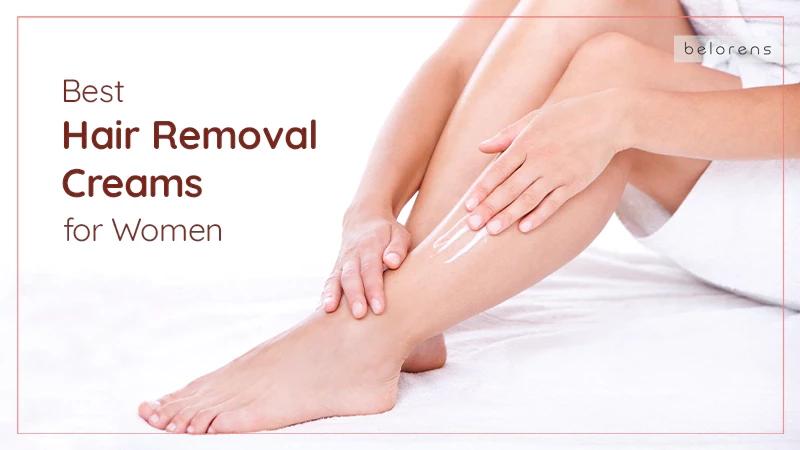Published on 4 Jan 2024 | Last updated on 26 May 2024
How to Treat Hair Loss in Women
- ByMedical Content Team
- Medically Reviewed byDr. Sabine Kulhanek
Fact checked

Unlike the prevalent misconception, that hair loss (alopecia) only affects men, many women are prone to hair loss and suffer from this issue in different stages of life. In fact, about one-third of women experience a kind of hair loss that could be mild to severe, sudden or gradual, in a patchy or sparse pattern which may happen at any age, usually after puberty though. However, when we use the term “hair loss”, it’s totally different from the normal daily hair shedding which is mainly visible as you wash or comb your hair. Losing about 100 strands of hair per day is pretty normal and is not considered a health issue. However, if you notice enormous hair loss or your hair strands start to thin you should definitely see a dermatologist.
Hair loss in women usually happens in the form of overall hair thinning rather than forming a receding hairline. Hair strands start to loosen and thin, especially on the top and cause the part to widen and become more noticeable. Yet, women’s hair loss could be classified into several types. While it is more likely to happen at an older age, especially after menopause, many young women may be affected and it could be psychologically devastating for them to lose hair compared to men of the same age. As women usually consider their hair an important element in beauty and if not controlled or treated, hair loss could be damaging to their confidence, emotions, and quality of life. To be able to best treat hair loss it is important to know the underlying reasons. This is why a thorough examination by the doctor could help you with finding the safest and most effective method to treat your issue.
What Are the Reasons for Hair Loss in Women?

There are several factors that can directly or indirectly lead to hair loss in women.
Hormonal imbalance: Your hormone levels could be affected in special stages of life such as pregnancy and menopause. Using birth control pills could also change your hormonal balance.
Diet: Restrictive diets may result in some vitamin or mineral deficiency. Vegetarian people are also prone to iron deficiency which may cause hair loss.
Extreme physical or emotional tension: Too much stress, be it physical such as excessive weight loss, surgery, severe illnesses, anemia, and giving birth to a baby, or emotional like the death of a loved one, may also contribute to hair loss which is usually temporary.
Diseases: Some illnesses may also cause or affect hair loss. Alopecia areata is an autoimmune disease in which hair follicles are attacked by the immune system and result in patchy hair loss both in the scalp and other parts of the body. Other medical conditions such as severe and prolonged hypothyroidism and hyperthyroidism may also lead to hair loss which is more diffuse rather than patchy causing hair to be thinly dispersed throughout the scalp.
Medical treatments and supplements: Some medicines used to treat blood pressure and gout and high doses of vitamin A may provoke hair loss. Radiation and chemotherapy affect the hair in the growth stage and bring about sudden hair loss which can be permanent if follicles are damaged.
Genetics: Genetics plays an important role in causing hair loss. Female Pattern Hair Loss (FPHL) is a hereditary condition that could be inherited from both parents.
Aging: Aging can give rise to hair loss as it’s another reason for hormone change.
Hairstyle: Traction alopecia is a condition when hair loss occurs due to pulling on the roots which are related to some tight hairstyles such as braids, tight ponytails, or corn rows. This hair loss could be even permanent if the hair follicles are damaged.
Over-processed hair: Over-processing which is excessive use of chemicals or heat can cause dry, brittle, and porous hair shafts that break easily. If you also burn out the scalp by over-processing, patches of your hair may fall out.
Myths about Hair Loss
Now that we reviewed the main reasons for hair loss, let’s get to the treatments but just before that I guess you wouldn’t mind knowing what doesn’t cause hair loss, or at least there’s no scientific proof confirming them although it’s been widely believed that they do.
The following factors are not proven to be associated with hair loss.
- Shampooing too much
- Dying your hair
- Getting a perm
- Dandruff
- Using hats and wigs
Possible Treatments for Hair Loss in Women
As already mentioned, to use the most effective treatment we need to consider the underlying reason. A method may work quite well for a specific kind of hair loss but not necessarily for another type. Therefore, it can only leave some side effects and create more complications. Generally, hair loss in women can be treated through medications or non-medication therapies. Still, some hair loss conditions need no treatment except for waiting for the underlying cause to disappear such as hair loss resulting from hormonal imbalance due to pregnancy and menopause or hair loss conditions caused by stress. These cases are usually temporary and hair will grow back as the hormone levels get back to normal or the emotional stress diminishes. However, if the hair loss won’t stop after this period or if it is caused by other reasons you need to consult a doctor to advise the best treatment for your case.
The following are the most important treatments for reversing or slowing down hair loss in women each of which can be effective for certain types.
Medication-Based Treatments for Hair Loss in Women

Hair loss can be pretty much managed with some medications including minoxidil (Rogaine, generic version), anti-androgens, and supplements.
Minoxidil:
Minoxidil, which was first prescribed as a medicine for controlling blood pressure, was reported to be associated with hair growth in patients taking it. Soon after, a generic minoxidil solution was approved by the FDA to be used topically as a hair loss treatment and became widely used. While minoxidil is usually taken in form of liquid or foam, they also come in form of pills to be taken orally that could be similarly effective in hair regrowth. A course of six months of daily minoxidil use is generally recommended for a considerable change in hair growth. While minoxidil is found to be helpful with hair regrowth, it could also bring about some side effects such as causing irritation in the scalp, increased hair growth in areas of the body other than the scalp such as your cheeks or hand, and fast heart rate.
Anti-androgens:
Androgens contain male hormones such as testosterone which can speed up hair loss in women. An anti-androgen drug, spironolactone (Aldactone), is usually prescribed along with minoxidil for women who don’t respond to minoxidil. This could particularly help women affected by hair loss who are also suffering from polycystic ovary syndrome (PCOS) since a higher level of androgen is produced in their bodies. An oral contraceptive may be prescribed as well for women of reproductive age. Anti-androgen treatment could also come with side effects including weight gain, depression, fatigue, and loss of libido.
Iron supplements:
Iron supplements could be quite helpful if a deficiency of this element has given rise to hair loss. This could be particularly effective for vegetarians who neglect to include enough iron source in their diet and those suffering from anemia or heavy menstrual bleeding.
Non-Medication Treatments for Hair Loss in Women
Many hair loss conditions could be treated by eliminating the cause, without having to take medicines. There are also some other non-drug treatments such as hair transplantation which can significantly help with certain types of hair loss.
Hair loss can be a challenging and emotionally distressing experience for many individuals. If you're considering hair transplantation as a solution, it's essential to make an informed decision. To get a comprehensive understanding of the process, potential outcomes, and real-life experiences, we recommend exploring the "Hair Transplant Discussion" forum.
Treat your hair differently
Some hair-related habits can be associated with hair loss. Here are some suggestions to reverse this condition resulting from simple things we carelessly do or don’t do in our daily life.
- Avoid frequent use of tight hairstyles which pull on your hair roots. As already said, some hairstyles such as buns, braids, and ponytails can damage your hair and cause them to fall out. Also, avoid twisting and rubbing your hair.
- Be gentle with your hair when you wash or comb it. Make sure you use wide-toothed brushes that do not pull the roots too much.
- Remember that frequent and non-standard use of hot rollers, curling or straightening irons, bleaching, and hot oil treatments can damage your hair and scalp. So be sparing with such hair treatings.
Watch your diet
If you maintain a well-balanced diet containing all nutrients that your body requires including vitamins and minerals, you can make sure that you’re not at risk of diet-related hair loss. Eat a variety of whole foods to make sure you’re not suffering from iron, zink, or some vitamin deficiencies. Some extreme diets or unhealthy eating habits can result in such deficiencies which in turn cause hair loss. You can go for a checkup and consult your doctor to determine if you need to take supplements.
Also Read: Start Your Day Right: A Healthy Breakfast and Effective Diet for Weight Loss and Fitness
Manage your stress
Prolonged stress can be important in causing hair loss which won’t be treated unless you manage your stress. Meditation and yoga can enormously help with reducing daily stress and even better control over emotional stresses.
Consider hair transplantation
Hair transplantation surgery includes removing hair follicles from an area of the scalp with healthy hair growth(the donor site which is usually the back of the head) and transplanting them to the balding area. While hair transplantation could be an effective solution for a wide range of hair loss issues, make sure your condition is one of them and you’re a good candidate for this method before starting to take action.
Face it
Well, facing a problem is not exactly a solution but still, it could help you better manage it. You may be affected by temporary or long-term hair loss and what can make it even worse is that you also hurt yourself psychologically and bear too much tension or resort to so-called miraculous but totally non-standard methods introduced by opportunistic frauds who abuse your despair.
Accept it. Treating hair loss won’t happen overnight. You need to be patient as all standard methods usually take a long time to bring about significant change. So don’t speed up your hair loss by too much pressure on yourself.
Also Read: Types of Hair: Identify Your Hair Type and Learn How to Take Proper Care of it
Last Word
Hair loss in women is a common issue with various causes such as hormonal imbalance, diet, stress, diseases, genetics, aging, hairstyle choices, and over-processing. Treatments include medication-based options like minoxidil and anti-androgens, as well as non-medication approaches like lifestyle changes and hair transplantation.
Patience is essential during treatment as results take time. Avoid quick-fix solutions and prioritize healthy practices, professional advice, and a positive mindset. Each person's experience is unique, so finding the right treatment may require trial and error. Take control of your hair loss journey to regain confidence and improve your quality of life.
Learn about other hair loss treatments for women to revitalize your hair and regain its fullness!



